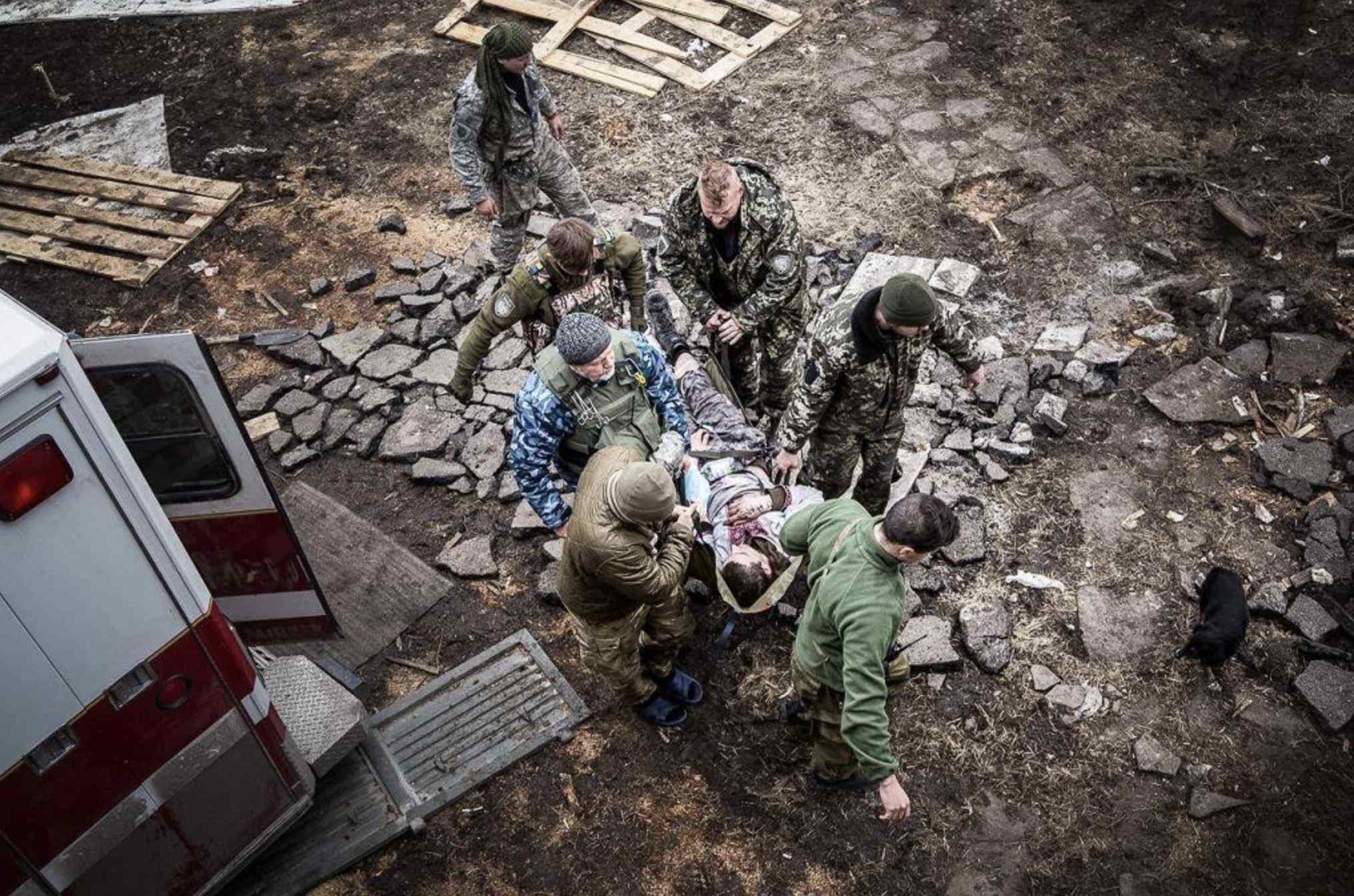European integration is closely intertwined in both the discourse of politicians and the expectations of citizens about Ukraine's future. Despite the war, or perhaps because of it, there has been progress in the European integration process – in June 2022 Ukraine was granted candidate status for EU membership. But the requirements remain the same as before, including the fight against corruption. For citizens, European integration is often a symbolic and very emotional topic. Sometimes it is perceived as a "civilizational" choice, although its essence is bureaucratic and full of complex legal context that should be understood in order to form an adequate opinion on EU accession.
This article will discuss the possible consequences of European integration for Ukrainian healthcare. It is important to understand that the arguments in this article are partly speculative, as it is impossible to know when the war will end and whether Ukraine will continue to be a buffer zone for the EU countries afterwards. However, regardless of the outcome, it is important to critically assess the role of the European Union and its interests in Ukraine.
Progress of healthcare reform: from the problems of the Soviet system to privatization and underfunding
Ukraine inherited its healthcare system from the Soviet Union, and until the 2017 reform, it remained relatively unchanged. The system was founded in the 1920s. During the decades of the USSR, it was characterized by a very high bed capacity, strong centralization, and hierarchy among doctors. The infrastructure was state-owned at all levels, and planning and provision was financed and managed by the state too. In terms of quality control and treatment effectiveness, there was little exchange of experience with Western countries, and there was no adoption of Western quality standards or harmonization with Soviet standards.
The Soviet system achieved many successes during its existence, including universal access to healthcare, successful control of many infectious diseases, and reductions in infant and maternal mortality. However, it was chronically underfunded even during the Soviet era. For example, the Soviet Union spent less on healthcare than Western countries (4% of GDP in 1991, while the lowest spending in Europe was 6% of GDP in the UK), and salaries of medical personnel were much lower. By the 1980s at the latest, negative trends in the health care systems of many Soviet countries became noticeable – for example, they could not effectively deal with chronic diseases, the number of which was constantly growing. These problems were sharply exacerbated by the collapse of the Soviet Union and the loss of public funding during the large privatization campaigns and deep socioeconomic crises of the 1990s.

Photo: REUTERS
Given that the Ukrainian system did not change significantly after gaining independence and until 2017, while funding was reduced, it "inherited" all the problems of the Soviet system, and the crises of the 1990s only exacerbated them.
In 2014, the country began to develop a new strategy for financing and reforming the healthcare system, and in 2017, the first large-scale reform of the healthcare system began. It has five main elements:
1. change in the principle of financing the healthcare system – from centralized state funding from taxes, which was tied to the number of beds and staff, to contracting through the NHSU (National Health Service of Ukraine);
2. financing based on the principle of packages of medical services (packages include both different treatments and sets of tests and examinations in different medical areas);
3. introduction of family medicine to strengthen primary health care;
4. linking the salaries of doctors to the number of declared patients and services provided;
5. introduction of international treatment standards.
These steps were aimed at fixing some of the earlier problems: for example, strengthening the primary healthcare system, increasing the transparency of the system through digitalization, adapting the system to the needs of the population, instead of paying depending on the size of hospitals, etc.
The public and most experts had an ambiguous and rather negative perception of the reform. "International organizations and some NGOs that supported the fight against corruption in the healthcare system were mostly in favor of the reform. The media campaign around the reform was often based on populist and neoliberal oppositions of "old, Soviet, corrupt, inefficient" and "innovative, efficient, private". Sometimes this opposition resembles a generational conflict, as in one of Deutsche Welle's stories, which shows almost caricatured figures of two doctors who embody the old and new systems.
After five years of the reform, we can better understand its success. The "affordable medicines" program, which has improved access to medicines for people with the most common chronic diseases (cardiovascular, asthma, and diabetes), is positively assessed. The introduction of digital tools is often praised for better control over the flow of funds – at least at the NHSU level. A report by Chatnam House on the success of anti-corruption reforms positively highlighted the new system of procurement of medicines by the Ministry of Health, which now takes place directly through international organizations.
However, there is still a lot of criticism and even generally negative assessments of the reform. The criticism often relates to the unresolved issue of financing – Ukraine spends very little on healthcare in proportion to its budget, falling short of the 5% of GDP minimum required by law. In another article, I compared the Ukrainian healthcare system with the German one in more detail, including the role of financing for the efficiency and accessibility of treatment. The lack of funding is not corrected by "optimization", corruption continues to exist, and further cuts are unlikely, especially during the war. This, in turn, is linked to the even deeper problem of a lack of understanding of the direction in which Ukraine's social policy should be developing.
Although many structural problems have been correctly identified, their solution has often been reduced to the marketization of problematic aspects that cannot be "optimized." Partly because of this, doctors are often portrayed as entrepreneurs rather than professionals working in critical infrastructure; who are to blame in case their "enterprise" is not profitable enough. On the one hand, this situation is due to corruption – hospitals retain a hierarchical structure where the chief doctor has a lot of power and sometimes really abuses it. On the other hand, the problem is that Ukraine has normalized the idea that any positive changes should be associated with privatization and bringing all public spheres closer to business and its logic. This generally contradicts the way healthcare is perceived in the EU.
What are the conditions of European integration for the healthcare sector?
After Ukraine and Moldova were granted candidate status on June 17, 2022, the Council of Europe issued an opinion that clearly states that the key to the final decision is the EU's ability to accept new members and the compliance of both countries with the Copenhagen criteria.
The current conditions for Ukraine's accession to the EU are primarily aimed at overcoming corruption and reforming the judicial system: reform of the Constitutional Court, continuation of judicial reform; anti-corruption, including the appointment of the head of the SAPO; fight against money laundering; implementation of the anti-oligarchic law; harmonization of audiovisual legislation with European legislation; and changes to legislation on national minorities.
With regard to healthcare specifically, the Association Agreement in Section 22 (Articles 426-428) lists the following items related to healthcare:
1. The strategic goal of cooperation in the field of health care is to increase the level of public health safety and protection of human health as a prerequisite for sustainable development and economic growth.
2. Cooperation with the EU should contribute to strengthening the health care system and its potential in Ukraine, in particular through reforms, further development of primary health care, and the fight against infectious and non-communicable diseases such as HIV/AIDS and tuberculosis (which are major problems in Ukraine and will likely only get worse because of the war).
The importance of health care for public health and safety is also mentioned in various chapters, for example, in the chapter on environmental policy, cooperation in science and technology, development of information technology, etc.
The EU's competences in the health sector are limited, so social policy is still determined at the national level. Only strategic areas in which the EU complements the policies of national states are legally defined – for example, Article 168 of the Treaty on the Functioning of the European Union lists the goals of preventing disease and illnesses by promoting healthy lifestyles, facilitating access to better and safer health care, promoting innovative, efficient and sustainable health systems, and countering cross-border threats.
These goals are manifested in programs such as EU4Health, which will run until 2027, and which Ukraine joined this year. With a budget of more than €5 billion, the program aims to increase the EU's preparedness for major cross-border health threats. To this end, reserves of medicines and medical personnel will be created in case of crisis situations, and it is planned to strengthen surveillance of health threats. The digital transformation of healthcare systems and access to healthcare for vulnerable populations, promotion of the reasonable and effective use of antimicrobials, and promotion of medical innovation and environmentally friendly production were also not forgotten. All of these regulations and strategic goals can push the Ukrainian healthcare system to overcome decades-old problems.
The Association Agreement also spells out Ukraine's commitments in the area of socially just policies, employment and equal opportunities. The strategic goals are to promote the agenda of decent work, employment policy, health and safety in the workplace, social dialogue, social protection, social integration, gender equality and non-discrimination. Article 422 also states that Ukraine should promote social responsibility and accountability of business and encourage responsible business conduct. Finally, Ukraine is expected to ensure gradual approximation to the EU legal framework, standards and practices in the field of employment, social policy and equal opportunities.
Genuine compliance with these norms is incompatible with what is currently happening in the Ukrainian labor market and in labor relations, a vivid example being the crusade against labor rights that reached its peak in the summer. In medicine, this primarily concerns the dismissive attitude toward nurses and orderlies who have not been paid for months and are forced to work part-time, which offsets the salary increases introduced earlier. Those who dare to defend their rights and actively participate in trade union activities face mobbing and pressure. This lack of public dialog contributes to the flourishing of corruption in hospitals, despite the fact that one of the goals of the reform was to eliminate it.
Benefits and threats of European integration for the Ukrainian healthcare system
Some of the effects of European integration are already partially felt in Ukraine, with both negative and positive examples. Inna Ivanenko, Executive Director of the NGO Patients of Ukraine, described two such examples from the pharmaceutical market regulation. The first one refers to the possible complication of the access of medicines already certified in Western countries to the Ukrainian market:
"European medicines have to undergo very strict control in Ukraine to enter the market, which I think is incorrect. For many years, we have been working to simplify the entry of European and American medicines that were registered in these countries and are present on the markets (the so-called markets with strict regulatory procedures) to the Ukrainian market. We gave them the green light, simplified registration; we trust the regulatory authorities of those countries and do not have to run quality medicines in Ukraine through all these circles, because it is nonsense. Our regulatory system is still not as developed as, for example, the European EMA. Therefore some questions about this law remain…".
There are also positive borrowings from European regulations, such as the mechanism of parallel import of medicines, although it still applies only to centralized procurement and not to free access in pharmacies:
"…Medicines can be shipped between EU countries. If they cost 15 euros in Greece, for example, the same drug in a different package costs 60 euros in Germany. We have now done the same thing between Europe and Ukraine for European medicines. So far, we are not talking about pharmacies, but about public and hospital procurement."
Such details are rarely actively discussed by the general public, which is expected, since few people are interested in the legal aspects of European integration without being active in the medical field on a professional or voluntary basis. To make this process understandable and provide realistic assessments of the adaptation of the Ukrainian system to the EU, it is necessary to listen to Ukrainian experts.
There are also indirect consequences of European integration for the health care system. They are related to the opening of borders and a common labor market. Given that the problems of Ukrainian healthcare are structural, we should not expect quick solutions, even with EU assistance. This may reinforce the trend of medical professionals leaving for other countries. There are different estimates of the possibilities of such trends, but solving the problems will in any case require the creation of decent working and living conditions in Ukraine, says Inna Ivanenko:
"They will still have to undergo certification: it will take more than a year to pass all this, to confirm it, to learn the language. Not everyone is ready to leave their country and emigrate. The war showed that we had an outflow of doctors. To prevent this, heads of healthcare institutions and hospital owners must work to create decent conditions for doctors. And the owners of hospitals, currently mostly local authorities, should make sure that communities have good medical facilities – they should provide housing and land plots for doctors so that they do not want to go abroad and build everything from scratch."

Military medics on the front lines. Photo: www.facebook.com/hospitallers/photos
At present, European organizations and trade unions are often the only ones who help doctors – for example, the German organization Medico provides support to the “Be Like Nina” nurses' union. The head of the grassroots organization, Oksana Slobodiana, comments on the cooperation with Medico and the possible consequences of joining the EU as follows:
"Our cooperation with Medico is a salvation for Ukrainian medical workers, because this is the only case in Ukraine when they started helping medical workers and their families, both war victims and those in need of treatment."
"It hurts a lot that our medics are forced to integrate. I believe that the longer they stay abroad, the more likely they will not return."
"For Ukrainian patients [joining the EU will make things] worse. For doctors, given that they are in demand in the EU, it will be good. Because the capable, young and talented will leave the country, I'm afraid, forever."
Many of the gaps in the Ukrainian healthcare system are already being closed not only by the EU, but also by other international programs through cooperation with WHO, Unicef, and USAID. The problem is that the successes are temporary and do not address structural problems. Most programs are narrowly focused, often lacking staff, infrastructure, and resources for training (both funding and access to international literature and the research community). This is the case, for example, when it comes to programs aimed at introducing evidence-based medicine and improving professional competencies. Accession to the EU may lead to an increase in such dependence, or vice versa, it may become a window of opportunity to reduce it. However, this is only possible if Ukrainian society understands the problem and has a vision of how to solve it.
Conclusions
Joining the EU is not a universal solution to Ukraine's problems. Even if the war ends soon, we will face a long process of reconstruction. It could be used as a chance to improve the state of the social sphere and healthcare in particular. However, legislative trends – such as the anti-labor laws No. 7251, No. 5161 on "0-hour contracts," No. 5371, and the recent law No. 5655, which reforms urban planning in favor of private capital – show that the policy vector remains extremely neoliberal, and that a just reconstruction, including the restoration of healthcare, will require significant efforts. If the situation is understood and the new financial resources and legal framework are used correctly, European integration could be an impetus for positive change. As noted, the EU does not have much power in the healthcare sector, and therefore the structure and priorities of the healthcare system remain primarily a matter for Ukrainian society.
The new healthcare system in Ukraine prioritizes cost savings in the healthcare sector, primarily through the closure of facilities. This leads to job losses for people who are faced with a choice between integration into a difficult labor market or migration. The state could take the path of not "punishing" inefficiency, but of re-profiling institutions and retraining employees. Currently, there is no such strategy, which the state explains by the lack of resources. Every year, the lack of political will and understanding of the importance of the social sector becomes more and more evident. Instead, a neoliberal "solution" is proposed that shifts the responsibility for the lack of resources to hospitals and employees.
EU countries are implementing neoliberal policies, but their own systems have been quite successful for decades in an increasingly liberal capitalism, primarily due to an internal balance between market forces and the needs of the population. Their systems are resilient to crises, both overtly market-based, such as the 2008 financial crisis, and the negative effects of crises of a different nature, such as the pandemic or Russia's war with Ukraine. However, this is not the case for all EU countries – the crises have shed light on regional inequalities. The southern and eastern EU countries are worse off than the western and northern ones, partly because of their historically different roles and partly because of EU policies that tend to put the interests of the most powerful countries ahead of those of the weaker ones. The domestic politics of each country also plays an important role. Ukraine, upon joining the EU, would be among those whose interests are not prioritized.
This imbalance is even more pronounced in the global context – it should be remembered that the significant resources of the richest EU countries are the result of their long historical dominance and imperialist policies. These policies continue today: inequality between countries is maintained through international organizations and the redistribution of capital from the periphery to the core. For example, the EU and the US have recently deliberately opposed the equitable distribution of Sars-Cov-2 vaccines internationally.
Ukraine, which itself suffers from various colonialisms, cannot be blamed for the EU's neo-imperialist policies, even if it potentially joins the EU, as it is the responsibility of the most influential Western countries. However, Ukrainian supporters of European integration should understand not only the consequences of joining the EU for their own country, but also for other countries and regions. Only a sober assessment of the actions of Western countries will allow Ukraine to maintain its subjectivity and join the policy aimed at global justice.



